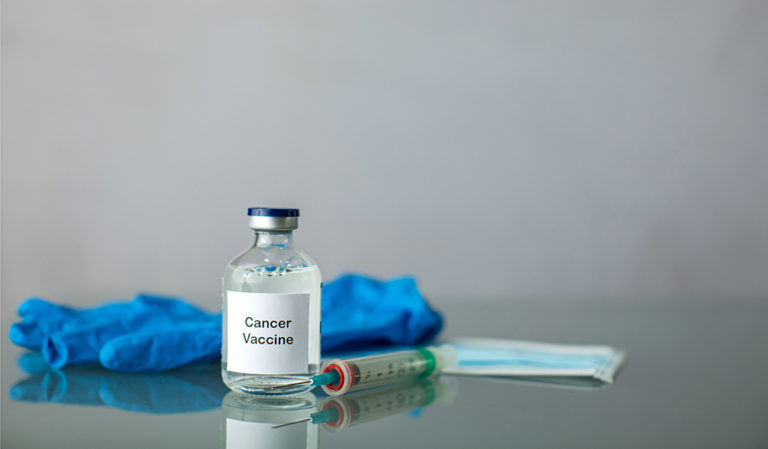Table of Contents: Oncotarget’s Volume 12, Issue #22
Oncotarget
October 26, 2021Read short summaries of the latest oncology-focused research published in this week’s issue of Oncotarget, Volume 12, Issue 22.
—
Cover (Research Paper): P10s-PADRE vaccine combined with neoadjuvant chemotherapy in ER-positive breast cancer patients induces humoral and cellular immune responses
Origin: Arkansas, Texas, United States; Villeurbanne, France
Institutions: University of Arkansas for Medical Sciences, University of Texas Southwestern, Highland Oncology Group, Université Claude Bernard Lyon 1
Quote: “The current study was performed to examine the feasibility, safety and immunogenicity of adding P10s-PADRE to standard-of-care chemotherapy in HR+/HER2− early-stage breast cancer patients.”
Research Paper: Dishevelled-1 DIX and PDZ domain lysine residues regulate oncogenic Wnt signaling
Origin: Texas, United States
Institution: Texas Tech University Health Sciences Center
Quote: “DVL proteins are central mediators of the Wnt pathway and relay complex input signals into different branches of the Wnt signaling network. However, molecular mechanism(s) that regulate DVL-mediated relay of Wnt signals still remains unclear. Here, for the first time, we elucidate the functional significance of three DVL-1 lysines (K/Lys) which are subject to post-translational acetylation.”
Research Paper: THSB2 as a prognostic biomarker for patients diagnosed with metastatic pancreatic ductal adenocarcinoma
Origin: Pennsylvania, United States
Institutions: University of Pennsylvania, University of Pennsylvania
Quote: “Patients newly diagnosed with metastatic pancreatic ductal adenocarcinoma generally have poor survival, with heterogeneous rates of progression. Biomarkers that could predict progression and/or survival would help inform patients and providers as they make care decisions.”
Research Paper: Comparison of MET gene amplification analysis by next-generation sequencing and fluorescence in situ hybridization
Origin: Frankfurt am Main, Germany
Institutions: University Hospital Frankfurt, University Hospital Frankfurt MVZ GmbH, Ruth-Moufang-Straße 1
Quote: “MET gene alterations are known to be involved in acquired resistance to epidermal growth factor receptor inhibition. MET amplifications present a potential therapeutic target in non-small cell lung cancer. Although next-generation sequencing (NGS) and fluorescence in situ hybridization (FISH) are conventionally used to assess MET amplifications, there are currently no clinically defined cut-off values for NGS, with FISH still being the gold standard.”
Review Paper: Emerging approaches of wound healing in experimental models of high-grade oral mucositis induced by anticancer therapy
Origin: Rio de Janeiro, Brazil
Institution: Federal University of Rio de Janeiro
Quote: “Clinical guidelines for oral mucositis (OM) still consist in palliative care. Herein, we summarize cellular and molecular mechanisms of OM ulceration in response to chemical therapies in animal models. We discuss evidenced anti-inflammatory and anti-oxidant drugs which have not been ever used for OM, such as synthetic peptides as well as cell therapy with mesenchymal stem cells; amniotic membranes, mucoadhesive polymers loaded with anti-inflammatory agents and natural or synthetic electrospun.”
Editorial Paper: Future directions for immunotherapy in meningioma treatment
Origin: New York, United States
Institution: Icahn School of Medicine at Mount Sinai
Quote: “Meningiomas are the most common intracranial neoplasm accounting for roughly 37% of all intracranial
tumors diagnosed in the United States [1]. These tumors display a wide range of clinical outcomes from favorable
to dismal. The current standard of care for these lesions is maximal resection of tumor tissue in regions amenable
to safe resection.”
Editorial Paper: Clinicopathological utility of human epidermal growth factor receptor 2 (HER2)-heterogeneity for next-generation treatments of triple-negative breast cancer
Origin: Nottingham, United Kingdom; Gunma, Chiba, Japan
Institutions: University of Nottingham, International University of Health and Welfare, Gunma University Graduate School of Medicine
Quote: “In recent years, developments in the diagnosis and treatment modalities of breast cancer (BC) have
greatly improved the prognosis and outcome. Systemic therapy approaches in BC include targeted therapy, cytotoxic chemotherapy, immunotherapy and other biological therapies and it is based on a set of prognostic clinicopathological variables and few molecular predictive variables.”
Click here to read Oncotarget’s Volume 12, Issue #22.
YOU MAY ALSO LIKE: More Oncotarget Videos on LabTube
—
Oncotarget is a unique platform designed to house scientific studies in a journal format that is available for anyone to read—without a paywall making access more difficult. This means information that has the potential to benefit our societies from the inside out can be shared with friends, neighbors, colleagues, and other researchers, far and wide.
For media inquiries, please contact media@impactjournals.com.


